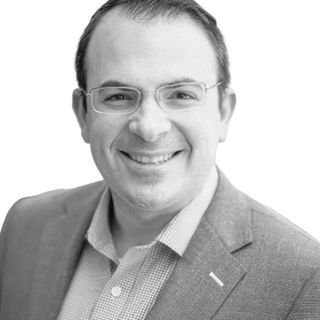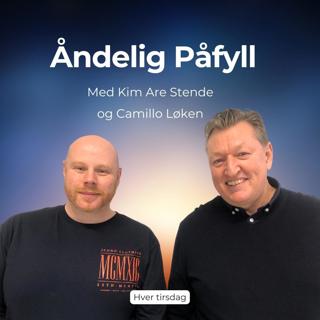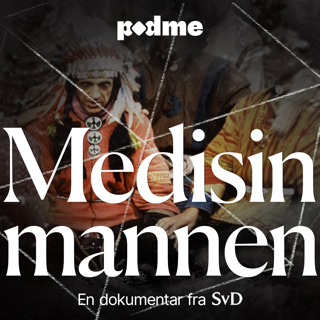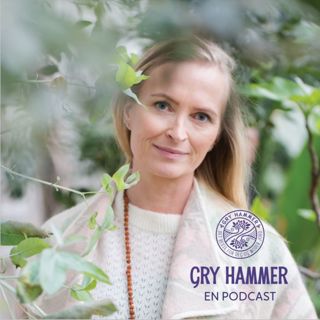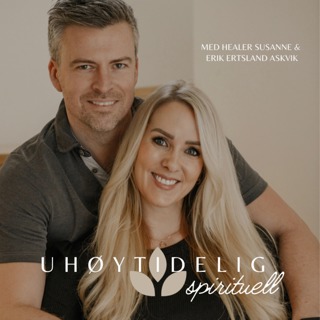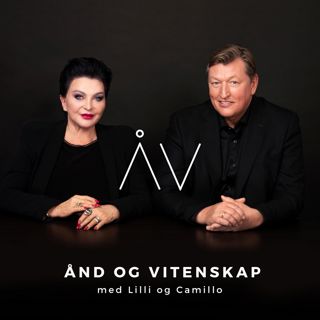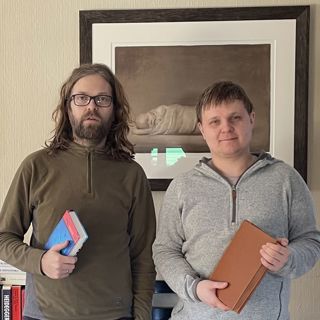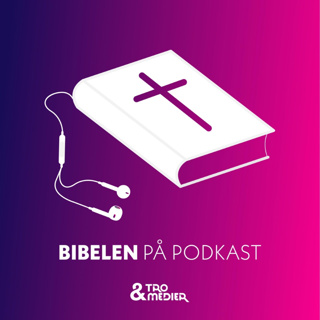![Protecting us from Ourselves: An Anonymous Perspective on Divorce [Agunah Crisis 4/4]](https://cdn.podme.com/podcast-images/D79089FBEF78B78B9B1A2A8AFD27F6A1_small.jpg)
Protecting us from Ourselves: An Anonymous Perspective on Divorce [Agunah Crisis 4/4]
In this episode of the 18Forty Podcast, we talk to an anonymous divorced man who gives us his perspective on the divorce process and the need to protect oneself from his own darkest inclinations.While one would never assume themselves capable of get (divorce document) refusal, the emotions of uncoupling run high and it's possible to find yourself considering using the get as a bargaining chip. We sit down with a man who was in this exact predicament and he explains why the get should never be used in this way and how signing a halakhic prenup protects both people in the dissolving marriage.-What role do community leaders, rabbeim, and therapists play in a couple's divorce process?-What should one do post divorce to better themselves?-What can men do to protect themselves from even the consideration of get refusal?-How important is the halakhic prenup for all communities?Tune in to hear a conversation on divorce, granting a get, and what can be done to protect against our baser instincts.References:To Heal a Fractured World by Rabbi Jonathan SacksThe Road Less Traveled by Scott PeckGame Plan for Life by Joe GibbsFor more, visit https://18forty.org/agunahBecome a supporter of this podcast: https://www.spreaker.com/podcast/18forty-podcast--4344730/support.
11 Mai 20211h 7min
![Bari Mitzmann: Social Media & Agunah Advocacy [Agunah Crisis 3/4]](https://cdn.podme.com/podcast-images/D79089FBEF78B78B9B1A2A8AFD27F6A1_small.jpg)
Bari Mitzmann: Social Media & Agunah Advocacy [Agunah Crisis 3/4]
In this episode of the 18Forty Podcast, we talk to Bari Mitzmann - Instagram content creator and host of the Women of Valor podcast - about social media advocacy, particularly in regard to the agunah crisis.With an Instagram audience of 30,000 followers, Bari is often asked to promote causes. One such cause was the recent #FreeChava campaign where Bari's promotion helped spark recent support for agunot. While posting about advocacy on social media seems like a natural thing to do, it can be hard to verify information about the causes being posted. Bari therefore likes to be careful about what she posts, posting sparingly to ensure maximum effectiveness.Does Bari use her account for advocacy? What kind of advocacy works best on social media? Why did she choose to advocate regarding the agunah crisis? What boundaries can be established on social media to maintain agency and sanity? Tune in to hear Bari Mitzmann reflect on her social media advocacy and the role she played in recent agunah advocacy.References:Women of Valor podcast with Bari MitzmannFor more, visit https://18forty.org/agunah/.Bari Mitzmann is a content creator, wife, and mother of two, who partners with women of all backgrounds to provide personal growth support. Bari holds a BA in Psychology, a Masters in Education, and has a large following on Instagram, where she thinks and talks about nutrition, social change, and the world of Jewish women. Bari is the host of the Woman of Valor podcast, which offers candid conversation and practical advice for the modern woman. Bari joins 18Forty to discuss social advocacy, change, and how to build a better world through social media.Become a supporter of this podcast: https://www.spreaker.com/podcast/18forty-podcast--4344730/support.
4 Mai 20211h 10min
![Keshet Starr: How Should we Advocate for Agunot? [Agunah Crisis 2/4]](https://cdn.podme.com/podcast-images/D79089FBEF78B78B9B1A2A8AFD27F6A1_small.jpg)
Keshet Starr: How Should we Advocate for Agunot? [Agunah Crisis 2/4]
In this episode of the 18Forty Podcast, we talk to Keshet Starr - CEO of ORA - about what it’s like to work on the front lines of agunah activism. As the CEO of ORA - the Organization for the Resolution of Agunot - Keshet is directly involved with many cases of get-refusal, working with both parties to ensure a satisfactory resolution. She is also involved in agunah advocacy - both for specific agunot and to raise awareness for the issue in general - and prevention. While many are averse to the concept of prenups, as it makes them uncomfortable, Keshet works to normalize and publicize the halakhic prenup, as well as other agunah prevention tactics. What does a typical agunah case look like? What steps does ORA take when helping an agunah? Do they protest on social media and at the get-refuser’s home immediately, or first verify the details of the case and develop a plan of action? Who does the prenup benefit and how does it give newlyweds insurance? Does it create a standard for marriage that’s better for everyone? Tune in to hear Keshet Starr reflect on her work in agunah advocacy, and the contributions she’s made as the CEO of ORA.References:Tears of the Oppressed by Aviad HacohenMeishiv Milchama by Rav GorenMarriage, Divorce, and the Abandoned Wife in Jewish Law by Michael BroydeGray Matter by Chaim JachterDaring Greatly by Brene Brown For more, visit https://18forty.org/agunah/. Mrs. Keshet Starr, Esq., is the Executive Director of the Organization for the Resolution of Agunot (ORA), the leading nonprofit organization addressing the agunah (Jewish divorce refusal) crisis worldwide. At ORA, Keshet oversees advocacy, early intervention, and prevention initiatives to eliminate abuse from the Jewish divorce process. Keshet is a Wexner field fellow and a graduate of the University of Pennsylvania Law School. Keshet has written and lectured widely on issues relating to divorce, domestic abuse, and the intersection between civil and religious divorce processes. Keshet brings to 18Forty her passion, wisdom, and commitment to bringing change to individuals and the Jewish world.Become a supporter of this podcast: https://www.spreaker.com/podcast/18forty-podcast--4344730/support.
27 Apr 20211h 3min
![Rabbi Shlomo Weissman: The Rabbinic Will and Agunot [Agunah Crisis 1/4]](https://cdn.podme.com/podcast-images/D79089FBEF78B78B9B1A2A8AFD27F6A1_small.jpg)
Rabbi Shlomo Weissman: The Rabbinic Will and Agunot [Agunah Crisis 1/4]
In this episode of the 18Forty Podcast, we talk to Rabbi Shlomo Weissman - head of Beth Din of America, YU Professor, and former lawyer - about the halakhic complexities of, and attempted solutions for, the agunah crisis. A halakhic divorce contract, called a “get,” must be given from the husband to wife, and the parties must give/receive the get willingly. When one or the other party doesn’t willingly participate in this process, the marriage cannot be ended, leaving the woman unable to remarry by Jewish law. Traditionally this has lead to women being unable to remarry when their husbands disappeared, but the issue of get-refusal - of husbands refusing to divorce their wives, maybe for leverage or spite, leaving them unable to remarry - is a more recent phenomenon. Among the topics covered, we discuss the following: What is the scope of the agunah crisis, and more specifically of get-refusal? What halakhic mechanisms does it involve? What makes this problem harder to solve than other problems relating to halakhic contracts? What solutions have been proposed in the past? Tune in to hear Rabbi Shlomo Weissman explain the complexities of this issue, and help contextualize it both in Torah and in modern society. References:The Power of Moments by Chip and Dan Heath Scholarly References:Rabbi Yitzchak Breitowitz For more, visit https://18forty.org/agunah/.Rabbi Shlomo Weissman serves as the Menahel/Director of the Beth Din of America, one of the foremost institutions for rabbinic legal adjudication. Shlomo received rabbinic ordination from RIETS and is a graduate of Columbia Law School, where he was a Harlan Fiske Stone Scholar. Prior to his association with the Beth Din of America, Rabbi Weissmann worked as an attorney at several prominent law firms, including Debevoise and Plimpton LLP. Shlomo lectures widely on the interface of Jewish and secular law, and is an Adjunct Professor at the Sy Syms School of Business at Yeshiva University. Shlomo brings his decades of knowledge, experience, and dedication to helping agunot to his conversation with 18Forty.Become a supporter of this podcast: https://www.spreaker.com/podcast/18forty-podcast--4344730/support.
20 Apr 20211h 28min
![Andrew Solomon: Far from the Tree [Divergence 4/4]](https://cdn.podme.com/podcast-images/D79089FBEF78B78B9B1A2A8AFD27F6A1_small.jpg)
Andrew Solomon: Far from the Tree [Divergence 4/4]
In this episode of the 18Forty Podcast, we talk to Andrew Solomon - a Pulitzer Prize finalist - about intergenerational divergence, as well as his book, Far from the Tree, which was in some ways the very inspiration for this topic. Andrew’s experience with intergenerational divergence began as a child, when his gay identity imbued him with a sense of outsiderness that is evident in his work. His book, Far from the Tree, deals with this topic explicitly, exploring the impact of things like deafness on a family’s ability to relate to and provide for their child. Andrew’s distinction between vertical and horizontal identities, referring to the ways in which the child relates to and is distinct from their family, is profound and underlies much of the message 18Forty has tried to convey this month. Among the topics covered, we discuss the following: What can lead a child to seek support outside of their family? How can parents best prepare for the possibility that their child will be different than they imagined? In such a situation, how can parents best help their child? In the event that they are unable to provide the support the child needs, how should the parents proceed? Tune in to hear Andrew Solomon give his thoughts on coping with generational differences.References:Far from the Tree by Andrew SolomonWelcome to Holland by Emily Perl KingsleyThe Noonday Demon by Andrew SolomonSound of Metal on AmazonFar and Away by Andrew SolomonAn Epistle to the Hebrews by Emma LazarusTorn in Two by Rozsika ParkerFor more, visit https://18forty.org/topics/divergence.Andrew Solomon, Ph.D., is a writer and lecturer on politics, culture and psychology; winner of the National Book Award; and an activist in LGBTQ rights, mental health, and the arts. He is Professor of Clinical Medical Psychology (in Psychiatry) at Columbia University Medical Center, Lecturer in Psychiatry at Yale University, and a former President of PEN American Center.Become a supporter of this podcast: https://www.spreaker.com/podcast/18forty-podcast--4344730/support.
5 Apr 20211h 11min
![Menachem Penner and Gedalia Robinson: A Child's Orientation [Divergence 3/4]](https://cdn.podme.com/podcast-images/D79089FBEF78B78B9B1A2A8AFD27F6A1_small.jpg)
Menachem Penner and Gedalia Robinson: A Child's Orientation [Divergence 3/4]
In this episode of the 18Forty Podcast, we talk to Rabbi Menachem Penner—dean of RIETS at Yeshiva University—and his son Gedalia—a musician, cantor-in-training, and member of the LGBTQ community—about their experience in reconciling their family’s religious tradition with Gedalia’s sexual orientation. When Gedalia realized he was gay as a young teenager, his parents weren’t sure how best to deal with the information. They initially attempted conversion therapy, now known to be ineffective at best and harmful at worst. They have since come to a happier, closer place in their relationship, characterized by love and mutual respect - but the road to this happy ending was long and indirect. Among the topics covered, we discuss the following: When did Gedalia and his parents realize he was gay? How did they react to this information? What was their initial course of action, and how has that changed over the years? Do they have any regrets? And what would they advise others in similar situations? Tune in to hear Gedalia and Rabbi Penner discuss their journey towards acceptance and mutual understanding. References:Far From the Tree by Andrew SolomonWhen by Daniel PinkWhy We Sleep by Matthew WalkerJQYEshelKeshetFor more, visit https://18forty.org/topics/divergence. Rabbi Menachem Penner (father) is the dean of RIETS, the Rabbi Isaac Elchanan Theological Seminary at Yeshiva University, and previously served as the rabbi of the Young Israel of Holliswood in Queens. Rabbi Penner is an eloquent speaker and chazzan, well-known for his rousing lectures on prayer. Gedalia Robinson (son) is a singer-songwriter, musician, and cantor-in-training at the H.L. Miller Cantorial School at JTS. Gedalia is well known for his powerful original music, his work with the Y-Studs, and as a member of Hadar’s Rising Song Residency. Gedalia came out as gay while in Yeshiva University and is a strong advocate and supporter of LGBTQ+ people living in and out of the Orthodox Jewish community. Gedalia currently lives in Philadelphia with his husband, Caleb, and dog, Booker.Become a supporter of this podcast: https://www.spreaker.com/podcast/18forty-podcast--4344730/support.
22 Mar 20211h 19min
![Daniel Grama & Aliza Grama: A Child in Recovery [Divergence 1/4]](https://cdn.podme.com/podcast-images/D79089FBEF78B78B9B1A2A8AFD27F6A1_small.jpg)
Daniel Grama & Aliza Grama: A Child in Recovery [Divergence 1/4]
In this episode of the 18Forty Podcast, we sit down with Rabbi Daniel Grama—rabbi of Westside Shul and Valley Torah High School—and his daughter Aliza—a former Bais Yaakov student and recovered addict—about navigating their religious and other differences. Daniel is a rabbi in Los Angeles, and has, to some extent, dedicated his life to teaching others about Orthodox Judaism. Aliza experienced a rebellious teenhood in which she left religious observance and succumbed to addiction. As Aliza’s deviation from her Orthodox upbringing became more pronounced, she and her family were forced to come to terms with their differences, and eventually learned to love, understand, and compromise with each other. Among the topics covered, we discuss the following: When did each side realize their lives were very different? How did they process this during the early years? How did Daniel and Aliza come to terms with the unfulfilled religious expectations of a parent? How have they been able to build a healthy relationship? And what would they have done differently? Tune in to hear Daniel and Aliza ruminate on the difficult years of their relationship and what has happened since. References:Mishpacha MagazineThe Body Keeps the ScoreScholarly Mentions:Donald WinnicottFor more, visit https://18forty.org/topics/divergence. Daniel Grama (father) is the rabbi of the Westside Shul in Los Angeles, and a rabbi in Valley Torah Yeshiva High School. Aliza Grama (daughter) lives in the Los Angeles area, and hosts a weekly parsha class with her father on her Instagram, where they model a shared appreciation for Torah that shines through their many differences.Become a supporter of this podcast: https://www.spreaker.com/podcast/18forty-podcast--4344730/support.
8 Mar 20211h 28min
![Rabbanit Rachelle Fraenkel: How Can God be Found After Trauma? [God 3/3]](https://cdn.podme.com/podcast-images/D79089FBEF78B78B9B1A2A8AFD27F6A1_small.jpg)
Rabbanit Rachelle Fraenkel: How Can God be Found After Trauma? [God 3/3]
In this episode of the 18Forty Podcast, we sit down with Rabbanit Rachelle Fraenkel—speaker, educator, and yoetzet halacha— about the effects of tragedy on emunah. In 2014, Rabbanit Rachelle Fraenkel’s son Naftali was kidnapped and murdered in a tragic terror attack. The week before the world learned of his fate was sad but hopeful, leaving many feeling crushed by the outcome. Despite this impossible situation, Rachelle was lauded as displaying emunah, faith, in Hashem, remaining optimistic but devoid of expectation. -How did or didn’t Rachelle’s tragedy impact her emunah in God?-What expectations can people have of God when they pray?-What expectations can people not have of themselves when they pray?-What should our relationship with God be during difficult times?-And how should we console those who are themselves going through difficult times?Tune in to hear Rachelle talk about emunah in the face of tragedy, and how one can blend optimism and realism. References:Yosl Rakover Talks to God by Zvi KolitzThe Blessing of a Broken Heart by Sherri MandellScholarly Mentions:Emmanuel LevinasFor more, visit https://18forty.org/topics/god.Rabbanit Rachelle Fraenkel is a teacher of Torah at Nishmat and the director of Matan’s Hilchata Institute. After her son Naftali was kidnapped and killed along with Gilad Sha’er and Eyal Yifrah in 2014, Rachelle became an international speaker and teacher. Rachelle speaks from the sharpest edges of human experience and her words are marked by a deep wisdom. Listen to Rachelle to hear from a profoundly learned and experienced teacher of Torah and life.Become a supporter of this podcast: https://www.spreaker.com/podcast/18forty-podcast--4344730/support.
23 Feb 20211h 22min
